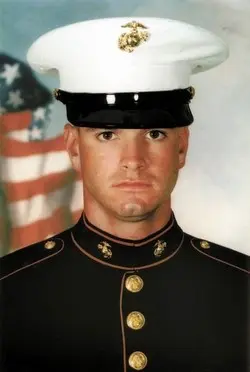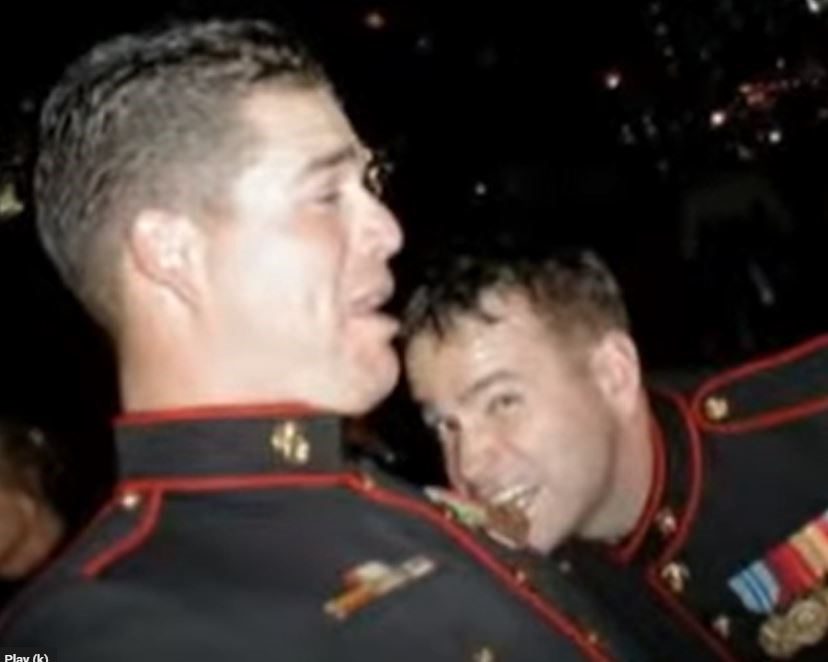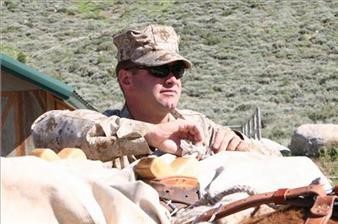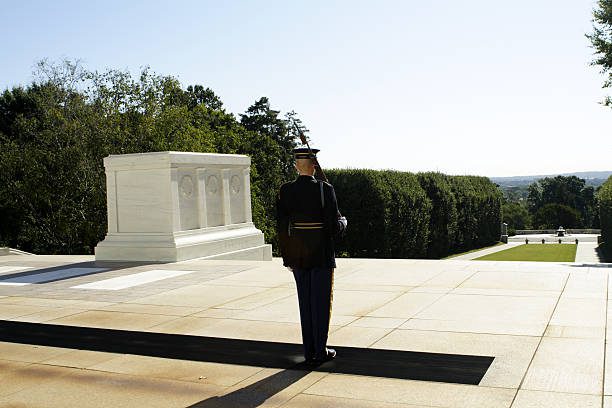
Phillip Allen Bocks
Staff Sergeant, United States Marine Corps
March 1, 1979 – November 10, 2007
Age – 28
Troy, MI
Operation Iraqi Freedom
Marine Corps Mountain Warfare Training Center, Bridgeport, CA
An ambush killed Bocks and five others in eastern Afghanistan as they returned from a meeting with village elders in Nuristan province
Marine Sgt Phillip Allen Bocks was working as a chef in a Detroit-area restaurant when he joined the Marines in 2000, without his parents’ knowledge. Instead of accepting reassignment in April to the Marine Air Ground Task Force Training Command at Twentynine Palms, CA, Bocks chose Afghanistan. It’s not unusual, but it’s not the usual. You were dealing with a special breed when you’re talking about Sgt Bocks.
For three years, Bocks was stationed at the Marine Corps Mountain Warfare Training Center near Bridgeport, Calif., where his family says he honed his leadership skills while sneaking out to ski whenever possible. He trained people how to survive a winter experience. He thrived in the Corps. Bocks also learned to shoe horses and mules, training to be a farrier. Bocks was a “mule pack master,” training Marines how to use pack mules when fighting in rugged, inaccessible landscapes. Our job is to get the Marines comfortable around the animals, to be confident in packing them, in caring for them, and for the Marines to be proficient at leading them on resupply missions by the end of the training.
The following article was written by reporter Jonni Hill of the Courier Reporter.
“It is always so hard to hear about the loss of any military personnel in the Middle East conflict this country is facing right now. To me it means another one of this country’s youngest and brightest hopes for our future is forever gone. It hits me even harder when the lost life is someone I have met and talked with. Such is the case of Sgt. Phillip Bocks, who lost his life in Afghanistan, on Nov. 9.
It was the first part of December of 2005, when I did a three part series of Pickel Meadow stories which meant spending some time at the Mountain Warfare Training Center near Bridgeport, a place I thoroughly enjoy visiting. One of the stories was about the course in high-country packing, provided by MWTC which appeared on the front page of The Record-Courier, Dec. 16, 2005.
I remember the day I went to do the story. It was well below freezing and I needed to be at the Pickel Meadow center by 6 a.m. This meant driving the Walker Canyon at “0-dark-30.” I know a lot of civilian and military personnel who make that drive every day at that time of the morning and sometimes under even worse conditions but it was still a little nerve-racking to me to drive that dark curving, icy road so close to the Walker River. Even so, I was so excited about where I was going and what I was going to be doing, the drive didn’t really bother me that morning.
I had finished my first interview in the mess hall and, by the time the sun came up, the day was warming to bearable. I was to meet with base operations chief, Master Sgt. Anthony Parkhurst, who in turn, would introduce me to pack master Sgt. Robert Scott and head wrangler Sgt. Phil Bocks at the stable.
Warmly greeted by sergeants Scott and Bocks, I remember being so impressed with the organization of equipment, the condition of the animals and the skills the two sergeants displayed in the handling of the mammoth jack mules they used for pack training. Moreover, the sense of pride they both took in the job they were doing was evident. The one thing I found a little disconcerting was that I found myself getting “Yes ma’amed” to death and thinking this was a term that should be reserved for my mother. I was starting to feel just a little old but then realized the Marine training of being respectful and polite was exemplified in both these young men and my feelings of being very old melted into something more like being very impressed with them.
Sgt. Bocks gave me a tour of the tackroom with its deckers, sawbucks, panniers, headstalls and lead lines all neatly in place, immaculately cleaned and polished. With obvious pride in his voice, he explained the rooms contents, the work involved in caring for it and the need for all the care. I could tell how much he loved what he was doing just by the way he talked about the jobs. He explained how he was learning to be a farrier, the importance of proper animal care and packing skills to the Marines who were stationed in Afghanistan. How the mountainous terrain made vehicle transport impossible and that the ability to handle a pack mule was a life saver.
Next, he ushered me out to a big holding pen, which, from the early morning sun, was starting to thaw into mushy, mucky mire. Sgt. Bocks told me where to stand as he released several mules into the compound in order to catch one for their demonstration which resulted in a momentary rowdy romp, churning the mud into the consistency of a thick soup, before one finally allowed capture. Again I saw patience and skill as the two sergeants worked with the herd and the captive mule they were going to pack.
I remember that day so clearly. I remember how they both left me with such a warm comfortable feeling at the end of the interview. Just talking to them made me realize our country was being represented by some of the finest young people in the world.
Knowing the final outcome of Sgt. Bocks’ life, I find it so sad that he did not have to return to Afghanistan, he went of his own choosing, but, after meeting him that one time, I fully understand his motivation to return for another tour of duty. True to his dedication, it was somewhere he felt he needed to be.
I am proud to say, that for one fleeting moment, I had the chance to know Sgt. Bocks. God bless him…God bless our military…God bless their dedication and God bless the fact that because of them, our way of life in this country will keep on keepin’ on.


